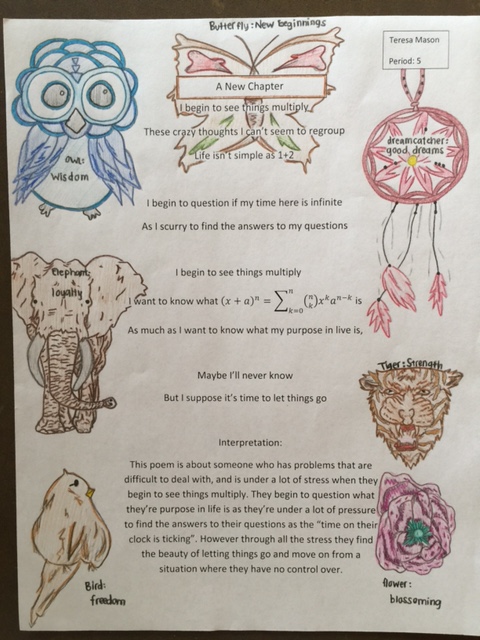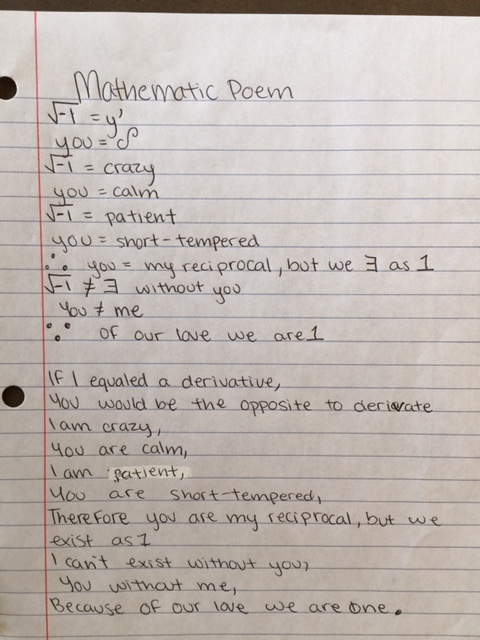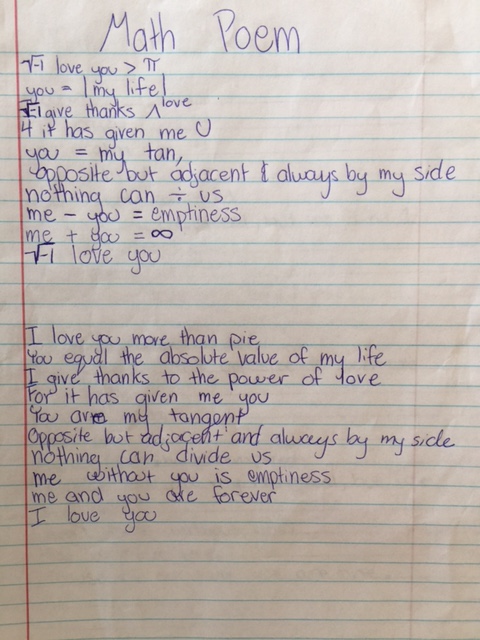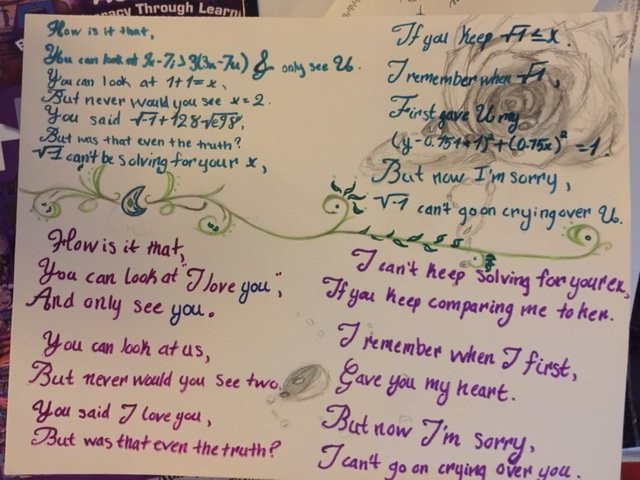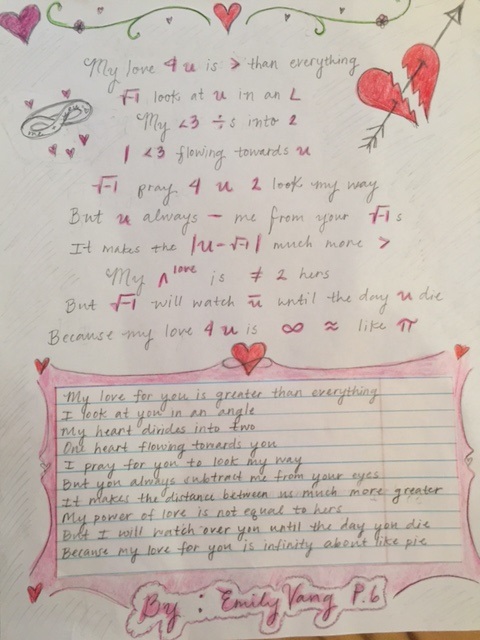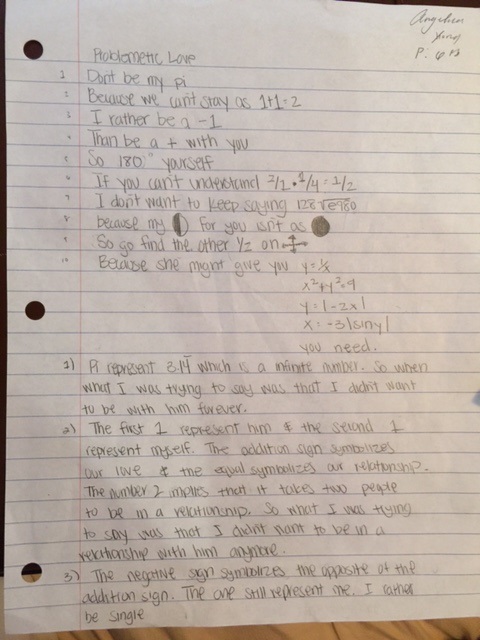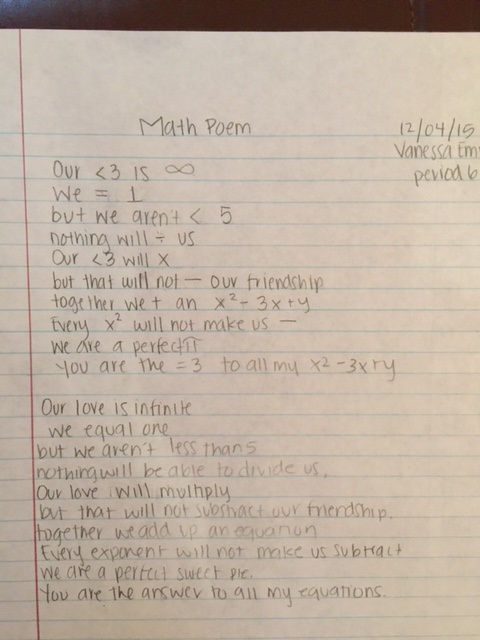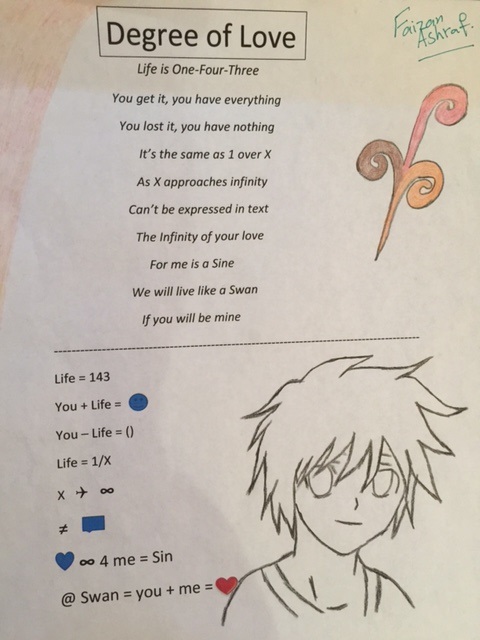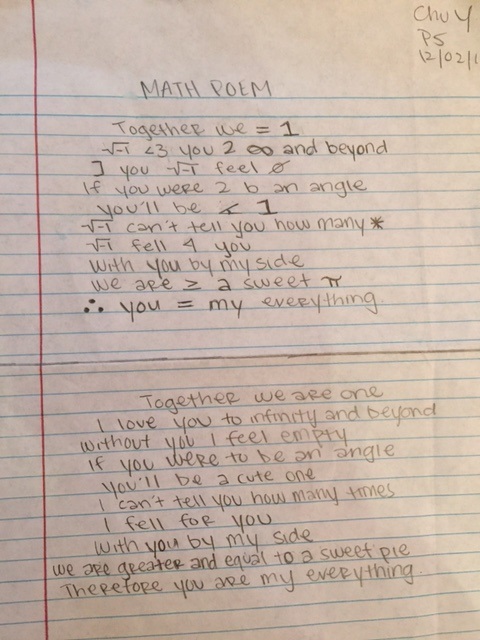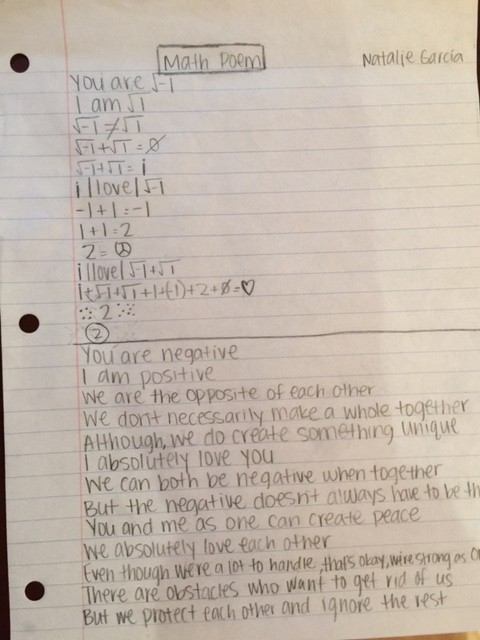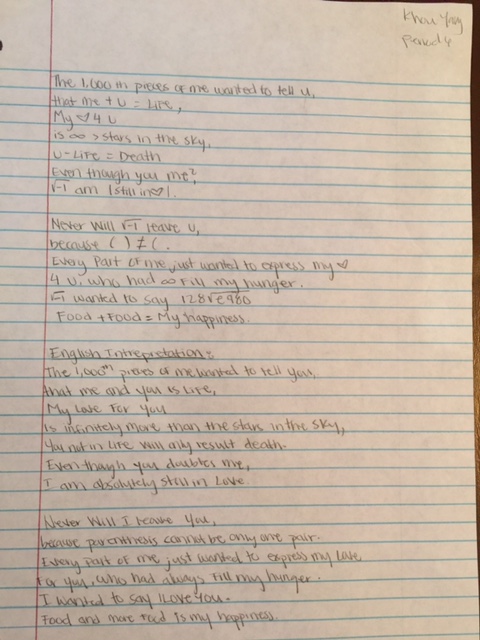Fallacy Videos
I’ll be adding more fallacy commercials as I have time:
Video: Basic Repellent
Script:
•Shot of the bottle, pan around
•1st Fallacy: Kanye drinks it (appeal to authority)
•Close up of the bottle
•2nd Fallacy: You need it to live (Ad bacculam
•3rd Fallacy: Buy it, it is the trend (appeal to common practice)
•4th Fallacy: Either you love it or you’re wrong (False dilemma)
•Person drinks the water and thumbs up
•Bottle flips with background music.
-End of Commercial-
Video: Smelling Musty
Faith, Imagination & Memory Project
Create a slideshow demonstrating three specific ways each of the following Ways Of Knowing can assist in our search for knowledge and three specific ways each of them can hinder (hurt) it. Begin by first defining what each Way Of Knowing means:
Imagination As A Way Of Knowing
Upload your slideshow to Authorstream or email it to mrferlazzo at aol dot com.
Prepare index cards for your presentation. This is practice for the official Oral Presentation next semester.
Letter Of Recommendation Form
I would love to write a letter of recommendation for you.
If you would like me to do so, please complete this form and email it to me. The more notice the better – please give me at least two weeks:
May, 2016 Writing Prompts Are Here For The TOK Essay!
Important tentative dates:
November 15th for an outline; December 15th for a draft; and February 1st for a final.
1. “In gaining knowledge, each area of knowledge uses a network of ways of knowing.” Discuss this statement with reference to two areas of knowledge.
2. “Knowledge within a discipline develops according to the principles of natural selection.” How useful is this metaphor?
3. “The knower’s perspective is essential in the pursuit of knowledge.” To what extent do you agree?
4. “Without application in the world, the value of knowledge is greatly diminished.” Consider this claim with respect to two areas of knowledge.
5. To what extent do the concepts that we use shape the conclusions that we reach?
6. “In knowledge there is always a trade-off between accuracy and simplicity.” Evaluate this statement in relation to two areas of knowledge.
Here is an outline my students should use for their essay
ToK Essay Planning and Progress Form (you may have to open this in Firefox)
You can find more of the resources we used to learn about writing the essay here.
Four key points that IB Examiners made in essays from last year were:
* Don’t use hypothetical examples. In other words, when you support your thesis with stories related to different Ways of Knowing and Areas of Knowledge, make sure they are real. Don’t say something like, “Suppose this was the case and that happened.”
* Make sure that ALL of your examples and points are explicitly connected to answering the prompt. End every example or point making that explicit connection.
* Make sure that you include counter-claims in your essay. In other words, what would people say who disagreed with your thesis and what would be your response to them? These should have a source. In other words, don’t just write “Some people might say…”
* You can use TOK concepts from the book, but don’t use specific examples to illustrate them. Instead, come up with your own examples. It’s okay to use some personal examples, but a majority should be more “academic” ones.
Theory Of Knowledge Schedule 2015-16
Theory Of Knowledge Schedule 2015-16
Mr. Ferlazzo’s Email Address: mrferlazzo@aol.com
Homework:
You must have a binder that is kept up to date and divided into the different Ways of Knowing and Areas of Knowledge. You should keep separate “Warm-Up” sheets for each of them, too. I will periodically check binders.
Unfortunately, the school is short of TOK textbooks at the start of the year. Until we receive more in, we will only have one class set, plus a few extra. In light of this shortfall, here is how we will handle assigned homework reading, which is always due on a Monday:
One half of the class will be “Group A,” while the other half will be “Group B.”
On the Monday prior to the week homework is due on the following Monday, the group that is responsible for doing the reading out of the textbook for that following week will check out a book from Mr. Ferlazzo and do the following work:
Read assigned chapters. For each one, write:
1)what you think are the three most important points and why you think they are important (two sentences for each one is sufficient),
2)two short key quotes and at least a sentence explaining why you chose each one, and two questions you have.
3)In addition, you must choose one “linking question” at the end of each chapter and write an “ABC” paragraph responding to it. “A” means answer the question; “B” means back it up with at least one piece of evidence from the chapter; “C” means make a comment/connection — share an informed opinion based on what you learned from the chapter and connect it to something else you know from something you read or experienced.
Homework will be shared in class. You will work with a small group of others who have read the chapter and have twenty minutes in class to prepare a five minute presentation teaching the chapter to the class. Most of this will be done between September and January, and then the focus during the second semester will be the group presentation and essay.
The other half of the class will need to read three articles given to you by Mr. Ferlazzo. For each one, write:
1)what you think are the three most important points and why you think they are important (two sentences for each one is sufficient),
2)two short key quotes and at least a sentence explaining why you chose each one, and two questions you have.
3) In addition, you must pick one article and write a paragraph following this outline:
* What do you think is the most important point the author is making? * Do you agree with him/her?
* Why do you agree or disagree with him/her? Support your opinion with a quotation from the article and information you know from elsewhere (something else you’ve read, your experience, your observation of others, etc.)
This shortage of textbooks means that when we use the textbook in class, you may have to share one, since others might be checked-out for homework.
Occasional assignments on TOK Class Blog (https://theoryofknowledge.edublogs.org/)
Group TOK Presentation – It will be videotaped. Substantial time in class will be provided to prepare, but outside time will also be needed. Your grade on this group presentation will be one of the two primary components of your official grade from IB. You may make two group presentations on two different topics . The one with the higher grade will count.
TOK Essay – At least one essay where substantial time in class will be provided (assuming we can get access to computer lab), but outside time will also be needed.
If you are an IB Diploma candidate or are seeking an IB TOK Certificate, you will also have to write a TOK essay in the fall of 2016 during your senior year that will be submitted to IB and will comprise the second component of your official IB grade (the Group Presentation will be the other portion).
This schedule is subject to change in consultation with the class.
SEPTEMBER:
- Introduction to TOK
- The Problem and Nature Of Knowledge, p. 3-40 — two chapters (homework due 9/14) Group A
- CAS Plan developed
- Knowledge Issues
- Allegory of the Cave
- Perception p. 88 -105 (homework due 9/28) Group B – also, everybody does the assignment on the blog titled “Why Do People Believe What They See?” by the same date.
OCTOBER
- Language p. 47-79 (homework due October 5th) Group A
- Reason and Logic p. 111-141 (homework due Oct. 12th) Group B
- Emotions p. 145-169 (homework due Oct. 19th) Group A
- Imagination, Faith, Intuition & Memory (no homework)
NOVEMBER:
- Math p. 187-213 (homework due November 2nd) Group B
- The Arts p.328- 356 (homework due Nov. 9th) Group A
- CAS Review
- History p. 300-322 (homework due Nov. 16th) Group B
DECEMBER:
- Ethics p. 363-396 (homework due Dec. 7th) Group A
- Natural Sciences p. 220-250 (homework due December 14th) Group B
JANUARY:
- Human Sciences p. 256-288 (homework due January 11th) Group A
- Religious Knowledge Systems p. 403- 431 (homework due January 18th) Group B
- Indigenous Knowledge Systems (no homework)
- TOK Presentation Planning – Decide on topic and group by January 26th. Assuming we can get access to the computer lab or laptops, you will have four class periods each week to work on it for four weeks. Your written plan will be due on February 10th.
.
FEBRUARY
- You will make your presentation in early March. Presentations will be video-recorded
- CAS Review
- The class will decide if it wants to move immediately into preparation for the second Presentation or if it wants to spend the first two weeks of March “teaching lessons.”
For teaching lessons, small groups will pick from a wide choice of materials for each Way of Knowing and Area of Knowledge. Each week, groups will prepare short lessons on the material they chose to present to a small group. You will be provided a guideline, and creativity will be encouraged. You will have one class period to chose and prepare; there will be one-to-two class periods to present.
MARCH/APRIL:
- First two weeks of student-created lessons or immediately begin preparing second presentations.
- Begin work on TOK Essay in late April
MAY:
- Work on Essay
- Essay due on June 10th
What Is A Knowledge Question?
Knowledge questions combine a Way of Knowing with an Area of Knowledge, are open-ended, and use Theory of Knowledge vocabulary. They should also refer to justification in some way (evidence, beliefs) either implicitly or explicitly.
Review this section by Prof. Crow is writing on behalf of TOK Tutor:
Consider these alternative questions:
1. Can we trust the senses?
2. When can we trust the senses?
3. Should we trust the senses?
4. To what extent should we trust the senses?
All four questions are forms of KQ, but they are varied in their impact and the quality of enquiry they generate.
KQs of the first type are fairly ‘weak’. Notice how they start with the verb ‘can’. Questions which start with variations of this verb (‘is’, ‘do’, ‘will’, ‘have’ and so on) are ‘closed’ questions, to which you can usually answer ‘yes’ or ‘no’ without much further informed discussion.
KQs of the second type are sound, but may end up in a more factual discussion of the topic instead of one that questions how knowledge is built. Notice how it starts with one of the 5 Ws, ‘when’.
KQs of the third type are slightly stronger and more ‘open’ in their impact: the verb ‘should’ already introduces an ethical element to our thinking and encourages us to weigh up the strengths and weaknesses of our topic. Alternative starting expressions could be ‘might’, ‘could’, or ‘would’ either alone or in conjunction with one of the 5Ws.
KQs of the fourth type are perhaps the strongest. Look at the command expression ‘To what extent…’ whose job it is to challenge us not only to explore the scale and depth of knowledge, but also to evaluate the methods of its construction. Other command expressions are ‘In what ways…’ (which allows us to compare and contrast how knowledge is built in different AOKs) and ‘How far…’ (which allows us to enquire into issues related to the limits of knowledge and its implications.)
Please review these materials:
Knowledge claims and knowledge questions
Knowledge Questions in International Baccalaureate Subjects
TOK Links For Student-Led Lessons
You can find most of them here.
However, for some weird reason, not quite all of the “tags” are visible at that link. Here are direct links to the WOK and AOK resources not listed in the above link:
Logic and Reason (They’re separate, but all related. I think I first started using the logic tag and later switched to reason)
Intuition (though most are still in the Emotion category)
Oral Presentation
Math Poems
Oral Presentation
Spring 2015 Essay Schedule
We will be following a schedule similar to the 2013 TOK Essay Schedule:
Monday, May 11th: Outline Due — Must be emailed to me.
Friday, May 22nd First Draft Due — Must be emailed to me.
Monday, June 1st Final Version Due — Must be emailed to me.
TOK Oral Presentations
Here is the outline that goes with this presentation
Surveys & Experiments For Oral Presentations
In the Oral Presentation example we viewed, students had created a survey and used the results as a part of their presentation (If you don’t remember what they did, go the video and watch at the 11 minute spot).
Do any of your knowledge questions create a possibility for you to create and use the results of a survey or an experiment?
To get you thinking, view these videos from a National Geographic series of human science experiments. There are many more here. Have members of your group each view at least three different ones – each — and then talk about any ideas they might provoke for your presentation. The point is not to replicate any of them — only to get your creative juices flowing.
Here’s are two examples:
TOK Presentations On Indigenous & Religious Knowledge Systems
Hmong New Year
Class Towers
Faith As A Way Of Knowing
IB has added “faith” as a new “Way of Knowing.”
Review these resources and identify ways that faith can help or hinder our search for knowledge. Please be sure to come up with at least three concrete examples:
Ways Of Knowing (scroll down to faith)
Scientific Faith Is Different From Religious Faith
How Possibilities of Life Elsewhere Might Alter Held Notions of Faith
Of Science And Faith, As Discussed By A Physicist And A Cardinal
Way of Knowing Final Project
Ways of Knowing Final Project
Review what we have learned about all the Ways of Knowing:
Perception
Language
Reason
Emotion
Imagination
Memory
Faith
Intuition
In groups of 1-4 people each, prepare a presentation (no longer than 6- to – 8 minutes), including a PowerPoint (it should have at least sixteen slides but can have more), on how at least five Ways Of Knowing can help and hinder our gaining of knowledge. Four of them must be Perception, Reason, Language and Emotion (our discussion in class on emotion was shortened — you can find additional resources here). You should include as many examples as possible — at least one example/story to illustrate how each WOK helps and hinders.
You will also have to begin your presentation by defining knowledge and end it by explaining which WOK you think is the most important one.
You will three days to prepare and practice your presentation.
Everyone should have a speaking role using index cards. Your PowerPoints will be posted on the blog for viewing by other TOK classes.
Please upload your presentation to Authorstream and post the link to it in the comments section of this post.
Revised TOK Schedule 2014/15
REVISED TOK SCHEDULE – 2014-15:
NOVEMBER:
- Emotions, p. 145-169 (homework due Nov.10th)
- Imagination, Faith, Intuition & Memory (no homework)
- Final Ways Of Knowing Project
DECEMBER:
- Math p. 187-213 (homework due December 1st)
- The Arts p.328- 356 (homework due December 8th)
- History p. 300-322 (homework due December 15th)
JANUARY
- Ethics p. 363-396 (homework due January 5th)
- Natural Sciences p. 220-250 (homework due January 12th)
- Human Sciences p. 256-288 (homework due January 19th)
- Religious Knowledge Systems p. 403- 431 (homework due January 26th)
- Indigenous Knowledge Systems (no homework)
FEBRUARY
- TOK Presentation Planning – Decide on topic and group by February 9th. Assuming we can get access to the computer lab or laptops, you will have four class periods each week to work on it for four weeks. Your written plan will be due on February 13th.
- Computer Labs starting February 15th – April 1st
